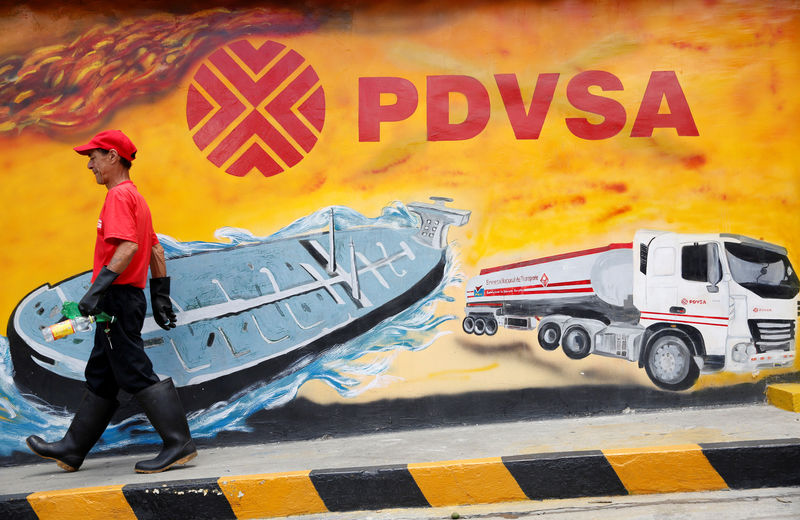By Brian Ellsworth and Marianna Parraga
(Reuters) - Courts in Curacao and Bonaire have partially lifted attachments introduced by ConocoPhillips (N:COP) aiming to seize Venezuelan PDVSA's [PDVSA.UL] assets to satisfy a $2 billion (£1.48 billion) arbitration ruling, according to a copy of the documents seen by Reuters.
Conoco has aggressively moved to take over state-run oil firm PDVSA's inventories, cargoes and facilities following an award by the International Chamber of Commerce last month.
The dispute has particularly affected the Caribbean, where PDVSA owns and operates refineries and terminals that supply several islands.
"Both the court in Curacao and those in Bonaire have decided that the attachments must be lifted to the extent that this is necessary for the fuel and/or electricity supply on both islands," the Common Court of Justice said in a release.
The proceeds from the fuel sales to local distributor Curoil must be transferred to a specially designated account, where the money will remain until it is established who will be entitled to it, the court added.
"We are pleased with the result, as this is consistent with the proposal made by ConocoPhillips to both (islands') local authorities, Curoil and the local courts," Conoco said in a statement.
PDVSA did not respond to a request for comment. Conoco's seizure requests froze PDVSA's oil inventories in Aruba, Curacao, Bonaire and St. Eustatius, as well as two oil cargoes off Aruba. Curacao's 335,000-barrel-per-day (bpd) Isla refinery is currently operating, but PDVSA has not sent crude to that facility since last week, so it is expected to halt operations in the near future, according to PDVSA sources.
The Bonaire and Curacao judges also ruled that PDVSA must resume fuel deliveries to Curoil, but it is unclear how Isla would continue producing. PDVSA will be fined $1 million for each day it does not comply with the ruling, with a maximum fine of $100 million, the Curacao judge said in a statement.
Conoco's legal actions have created worry across the Caribbean and Central America as 47,000 bpd of fuel were expected to be shipped by PDVSA from Curacao in May mainly to Cuba, Belize, Nicaragua, El Salvador and Haiti, according to PDVSA's internal trade reports.
Curacao Prime Minister Eugene Rhuggenaath last week said the dispute is posing a "potential crisis" for the island. Aruba is preparing a contingency plan to avoid a situation similar to Curacao and Bonaire, where inventories were blocked, according to Aruba's prime minister, Evelyn Wever-Croes.

The U.S. State Department earlier this week said there is enough oil in the global market to make up for potential fuel disruptions due to Conoco's actions. "The U.S. Department of State remains in contact with our partners in the Caribbean to reduce the risk of supply disruptions," said Vincent Campos, spokesman for the Bureau of Energy Resources.